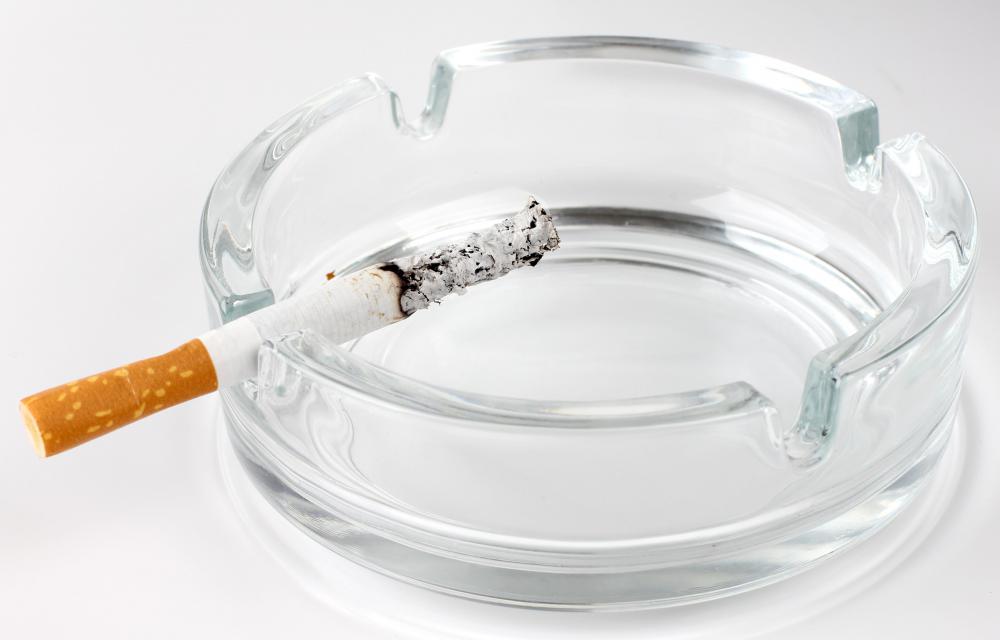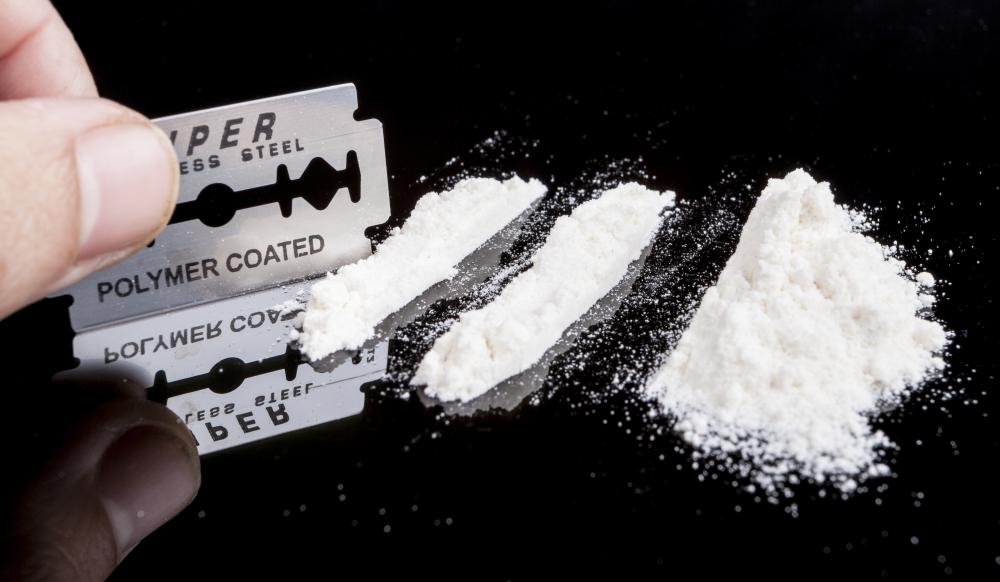At WiseGEEK, we're committed to delivering accurate, trustworthy information. Our expert-authored content is rigorously fact-checked and sourced from credible authorities. Discover how we uphold the highest standards in providing you with reliable knowledge.
What is the Gateway Drug Theory?
The gateway drug theory is one that has been used to argue that the use of certain “milder” drugs, like alcohol, tobacco, and marijuana, increases the likelihood that people — especially teens — will then be at greater risk for taking “heavier” drugs, like heroin or cocaine. Though the gateway drug theory is popular and there may be some correlation between early use of drugs like marijuana and harder drugs, the correlation is not simple, and the theory is in dispute. Studies by a number of reputable agencies show that use of alcohol, cigarettes or marijuana may not cause more serious drug use.
Despite holes in the theory, a parent who finds their child using one of the so-called milder drugs still has every right to be concerned. Even if this child never progresses to using harder drugs, the toxicity of especially alcohol and tobacco are well understood. In some cases this drug use might lead to heavier drug use, and even on its own it still poses a danger.

Some of the key studies investigating gateway drug theory show conflicting results. The American Psychiatric Association published a 2006 study, the result of 12 years of research, which followed boys who at onset of the study were 10-12 years old. The study evaluated over 200 boys and came to the conclusion that using gateway drugs was not a reliable predictor for later drug use of heavy drugs.

To make matters more confusing, a contrasting study done in Australia shows opposite results. It concluded from a sampling of nearly 2000 14-15 year olds that those who used marijuana were over ten times as likely to use harder drugs later on. The larger sampling here may win the day and prove the gateway drug theory.
Other interesting work has been done on the nature of the opiates in marijuana, which may dull the senses and make people more likely to use harder drugs to achieve the same high. One such study on rats found that rats dosed with marijuana, and then were given access to heroin, took on average more heroin than did rats that hadn’t used marijuana first. Some scientists say it’s impossible for this theory to be applied to humans.

A British study financed by the RAND Corporation and published in 2002 concludes that use of gateway drugs cannot be a reliable predictor for later hard drug use, and that scientists should evaluate other factors besides marijuana use to explain the prevalence of using hard drugs. There is something to this theory, because it’s important to take into account that some people begin with harder drugs and have never used alcohol or marijuana. Further, the gateway drug theory that smoking causes drug use may in fact be the reverse. Drug use may cause smoking.

The gateway drug theory has been used to explain why people progress from milder to harder drugs, but it does little to solve the issue of why teens must use any drugs to begin with. Studying the operant conditions for any drug use may be more valuable than studying how use of one drug may lead to another; especially since the gateway drug theory is now a matter of argument and debate. If we truly want teens and adults to not use drugs, studies that outline the emotional, social, economic, and physical conditions under which drug use of any kind is more likely to occur may be more relevant. Results from such work might help to blueprint more accurate ways to help people avoid drug use.
AS FEATURED ON:
AS FEATURED ON:
















Discussion Comments
I can see that this is such a hotly contested subject just by looking at how the scientific community views marijuana, alcohol, and tobacco. Medical use of marijuana is sweeping the nation and it is only a matter of time that it will be adopted by the federal government. At the same time, peer-reviewed reports and studies are coming out saying that drugs like alcohol are much more detrimental to society than the "hard" drugs like heroin and cocaine.
A study co-written by the UK's Independent scientific Committee on Drugs and the European Monitoring Center for Drugs and Drug Addiction concluded that Alcohol was the most harmful of all drugs trailed by heroin and crack. Tobacco actually ranked higher than amphetamine and cannabis, while marijuana was the lowest ranked of all illicit drugs except for psychedelics like mushrooms and LSD. The study examined these drugs based on their total impact on society and on the person using the drug.
@ Submariner- I agree that Marijuana and alcohol are not the gateway drugs too, and I shoulder the blame on parents and societal norms. Attributing drug addiction to marijuana, alcohol or tobacco is just an easy cop-out since they are the most widely used drugs in the country.
The road to addiction can start anywhere, and there are always more than one factor to blame. I worked at a teen center for troubled youth, and most of the kids’ drug problems stem from drugs like xanax, diazepam, klonapin, ritalin, adderall, and opiates. Kids would buy and sell these drugs and eventually move up to similar illegal drugs like ecstasy, Methamphetamine, cocaine, and heroin. Marijuana and alcohol were almost always the fall back drugs for these kids (what they would use when they could not find their drug of choice). To say that these drugs are gateway drugs is debatable, but to say that parents and doctors did not monitor their minors prescriptions or behavior close enough is dead accurate.
I find that the gateway drug theory is a misguided theory that is used to justify a war on drugs that is really just a means of creating a privatized criminal justice system that is heavily subsidized by taxpayers. There are cultures that use marijuana and other drugs for cultural, medicinal, and religious purposes, and the prevalence of hard drug abuse amongst these cultures is much less than what is found in American society. You could call any drug a gateway drug when you have an overstimulated society that promotes addictive behavior.
I think much of the problem with kids using drugs so early is a lack of supervision since parents are often never home, and there are fewer role models to guide kids through the early stages of their lives. To blame a specific drug for the reason that people use other drugs is a bit ridiculous, especially to the extent that the war on drugs has taken it. I believe that people just do not want to take a look in the mirror and blame the person or people who are really responsible for youth delinquency and drug abuse.\
Post your comments